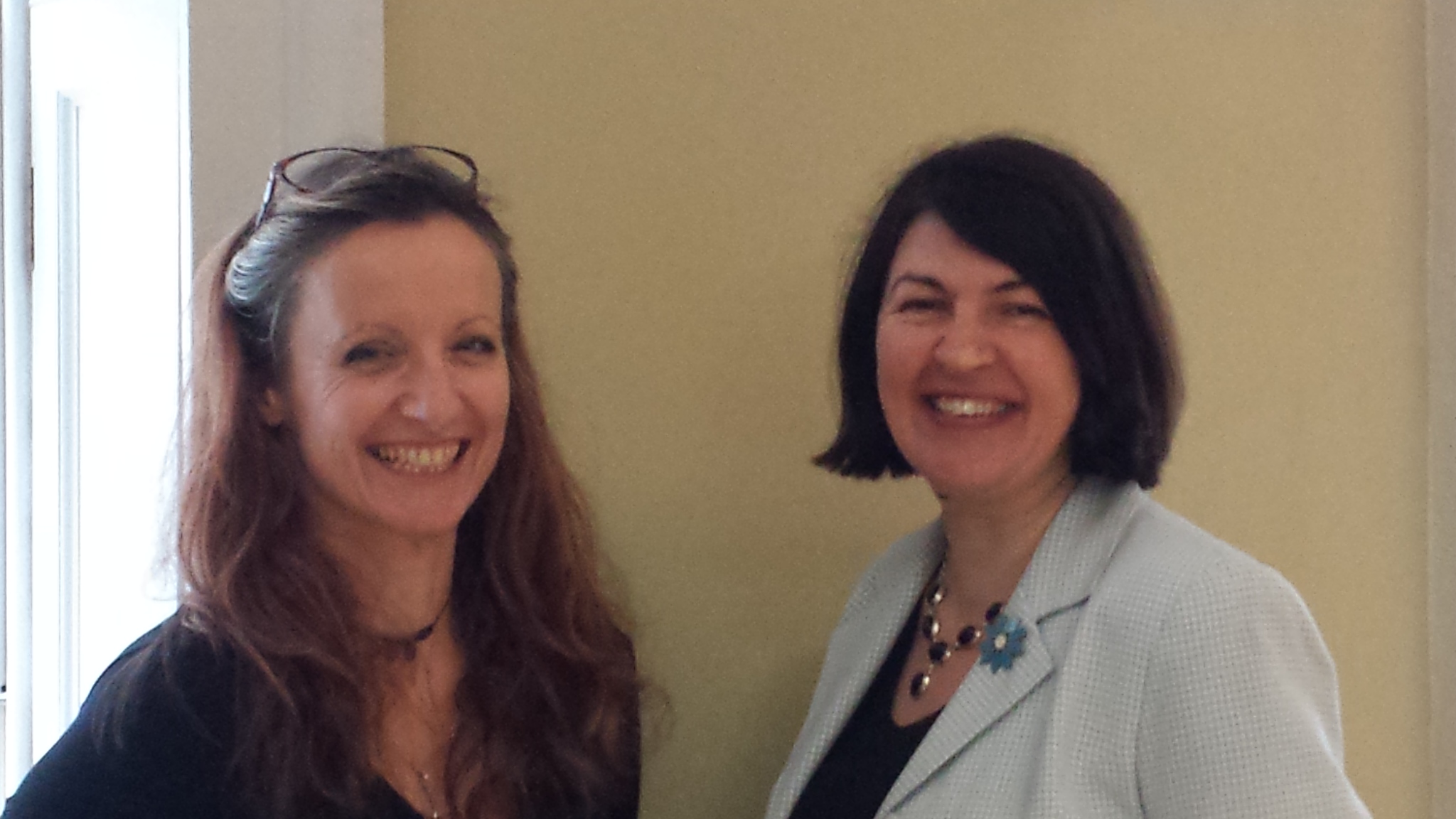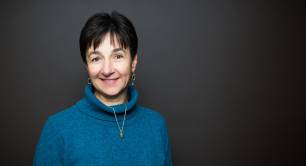Why we need more women on investment boards
Following Jo Tilley-Riley's recent criticism of the lack of women in social investment, we're pleased to be able to follow up with an article explaining why greater gender parity on investment boards would be a good idea.
Servane Mouazan of Ogunte CIC contacted us some time ago wanting to comment about the inlcusion of more women on investment boards. Mouazan had been prompted by June O'Sullivan of the London Early Years Foundation (LEYF) to expand on some ideas Mouazan had discussed with Rohan Martyres of CAN Invest. Martyres had mentioned the conversation to O'Sullivan. Together we developed some key questions for Mouazan and O'Sullivan to discuss.
Why should investment panels include more women?
Servane Mouazan: Because investment panels are not supposed to be 'dude fests'! Let’s reframe the question: why would a panel that is supposed to make a judgment on the capacity of a company to make future financial and social returns base its decisions solely on the views of an unrepresentative sample of the population?
Or: what makes a male only panel more qualified than a diverse panel? Reframing the question is uncovering the current pain point. We already know women involved in the decision-making process are good for the bottom line in business. International Monetary Fund (IMF) research into two million companies across 34 european countries came to that conclusion. I believe that this statistic is transferrable to decisions around investment panels too.
June O’Sullivan: The world of business is best and more successful when the team has men and women. It simply makes sense because you gain two different perspectives about opportunities, challenges and impact.
In the same way, businesses looking for investment will gain a broader hearing from a mixed team and therefore the panel is more likely to have a more rounded debate, which increases the chance of making a more sensible decision.
What qualities will women bring to the table that men don’t already have?
SM: It takes one to know one… One of the participants on our incubator for Women Social Entrepreneurs was pitching for investment for her platform that helps women to buy the right size clothes first time, depending on the brand they were looking for – labelling issues in the UK makes the task virtually impossible. As well as helping women to buy clothes that fit, quickly and easily, the platform was helping women to stop defining their self-worth by being, or wanting to be, a certain size, and to be happy in their own skin.
The men in the panel didn't get it and were about to discard her completely, whilst the only woman on the board understood the pain point and immediately saw the value of such a platform. She convinced the rest of the board. It is not just a matter of Excel sheets, or financial literacy. In short, women are bringing balance.
Studies prove that men and women don’t differ much cognitively. However, society pushes and labels men and women in different corners and it makes them experience life differently. As a result, women's perception on life, markets and individuals are different from those of men. It is not a matter of saying who is better or who is worse, who is more “right or wrong”. It’s a question of balance.
As an entrepreneur, to design a service or a product properly, you are using insights, perceptions and experiences from as many stakeholders as possible. So why shouldn’t a board behave the same way they expect companies to behave?
JO’S ; Women bring an insight that is different to men, especially if they are reflecting this through the lens of diversity and inclusivity. Women have different needs and demands to those of men at different times of their lives and this will shape their responses. They will hear and perceive things differently to men especially in terms of risk.
Interestingly, one of the seven traits of good Board members according to Yvonne Thompson is to be able to listen. So it’s time the investment world listened and invited women to be part of the future.
Pictured above: Servane Mouazane and June O'Sullivan
What proof do you have that boards with women on them make better decisions?
JO'S: The best decisions are made by people who understand the issues but are able to step back and make independent and well considered judgements. This is not the prerogative of either men or women but of both.
It’s ridiculous to have boards where half the population is not reflected. Investment decisions (particularly about social ventures) are complex and reflect financial probity, trust, and social impact. There is much to do to strengthen the social element of any investment and having two perspectives is more likely to speed that process up especially when a female board member is herself running a social business.
What would you say to boards who argue that they’re not seeing enough women wanting to get involved?
SM: I would argue they haven’t looked hard enough. There’s a pipeline of competent women coming from various horizons. Pipeline Angels founder Natalia Oberti Noguera is one of the women who is changing the face of angel investing and by doing so, potential candidates for investment committees. Women Effect is another platform that enable people to see gender in their portfolio (and by doing so, helps organisations flip the mirror and look at how they can address the lack of women on their investment committees).
There is also an issue on the way boards are putting recruitment calls out. Our Make a Wave programme, an incubator for women social entrepreneurs, particularly focused on breaking down the barriers between funders, investors and entrepreneurs. Incubees were saying they felt intimidated by the prospect of male-only panels, and in some case desisted to apply because of this reason.
During the sessions, they also learned how to “recruit” and understand their potential backers. They learned to spot funders that were looking for safe bets, and polished, problem-free companies. They learned to find funders ready to get stuck in and, even with a decent track record, to help them with issues and new learning.
If the entrepreneurs perceived the funding organisations as too siloed (not diverse enough, not bold enough, or unrepresentative), they were more enclined to find alternative ways to source funding. Maybe that explains the emergence of crowdfunding, as one of the very popular financing tools among women. For this reason it is important for an investment committee to reflect on this and not lose out on opportunities.
Is it better to judge people on merit or gender when putting an effective group of people together?
SM: I would say merit, however both are not incompatible. The issue is to look for potential investment panel members in different areas than the usual spheres. The issue with finance in general, is that recruitment takes place predominantly in the “old boy’s networks”. If you add to this the – declared or implicit - prejudice about women’s mathematical and financial skills, then you have of course a biased result where the “merit” tick box is fraud.
Halla Tómasdóttir, founder and lead partner at impact investing firm Sisters Capital, has advocated moving away from the 'sameness' of all male financial services. She stands for risk-awareness rather than pure risk-taking in investments and emphasized the importance of placing value on emotional capital, rather than pure financial capital, because: “people make and lose money, not Excel spreadsheets.” That in itself is an argument for diversity in a context where gender stereotyping is blocking innovation and performance.
JO'S: It must be on merit. I have some difficulty with the quota perspective as it risks devaluing women’s contributions and can set us up to fail.
For example the government is always keen to have more female politicians in the Cabinet but some of those women seem to be there because they are women, not because they can do the job; this is never a great starting point for the argument of more women in government posts.
That said, sometimes it need legislation or a quota to move the dial. I recognize that its quicker than waiting for some brave woman to kick the glass ceiling through to show that women can get to the top of the tree and do a great job. This is particularly for those women social entrepreneurs who I think have to break through a triple glazed glass ceiling!
- 1st level glass ceiling: being a woman
- 2nd level glass ceiling: running an ordinary business
- 3rd level glass ceiling: running a social business
June O’Sullivan is a member of the CAN Early Intervention Fund Investment Board which was set up as a business unit with the charity CAN which was set up by CAN Invest and UBS, to help charities and social enterprises with two key barriers to improving their sustainability and impact, namely ‘skills’ and ‘finance.’ CAN Invest is a business unit with the charity CAN which aims to help charities and social enterprises with two key barriers to improving their sustainability and impact, namely ‘skills’ and ‘finance.’
She was asked to join to bring her experience of running and growing a social business in London to the investment team from UBS and CAN. The investment board is focused on addressing gaps in the social investment market by focusing on those requiring small, simple loans. The CAN Early Intervention Fund provides loans of £5k -£100k to small voluntary and community social enterprises working with children and young people, particularly in East London.
The fund also supports suitable VCSEs become investment ready if they are not at a stage to take on social investment at that point in time but may be appropriate for the Fund in future.
Servane Mouazan founded Ogunte CIC, a certified B-Corp that grows the women led social enterprise ecosystem, through capacity building and programme management for and with social entrepreneurs, as well as their business support and finance providers.
Servane is running the Womanity Award, an initiative by the Womanity Foundation, one of the TOP 200 global NGOs. The award is investing in structures that harness ICT's to prevent online-violence against women. She also serves on various advisory boards focusing on gender equality and women’s empowerment. Ogunte has supported over 5000 female change-makers; developed the first incubator for women social entrepreneurs in the UK and run the International Women’s Social Leadership Awards with over 130 finalists from 23 countries. The organisation also coaches intermediaries to adopt a gender lens approach in their portfolio.
The WISE100 – a new initiative from the NatWest SE100 Index – will recognise 100 of the most inspiring and influential women in social enterprise, impact investment and social innovation. Nominations will open on Friday 5 May and anyone will be able to nominate their women of choice. Visit the SE100 blog for more information.
Photo credit: Tim Gouw




